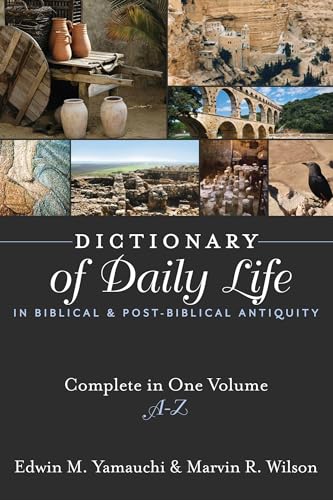




Throughout the pages of ancient scriptures, a compelling narrative unfolds, revealing the profound journey of faith and redemption embarked upon by early followers of God. In the midst of a world enveloped in darkness, these individuals sought salvation, yearning for a divine connection that would transcend the limits of human understanding. Delving into the rich tapestry of the Old Testament, we uncover a wealth of wisdom and insight, discovering the intricate steps taken by these believers to find solace, forgiveness, and eternal life.
As I traverse the sacred texts, I am struck by the unwavering devotion displayed by these ancient souls. Their unwavering commitment to God’s commandments and their relentless pursuit of righteousness are the pillars upon which their journey to salvation rests. In their quest for deliverance, they encountered trials and tribulations, tested by fires of adversity, yet their faith remained unshaken, anchored by a profound belief in the promises of a loving and merciful God.
Within the pages of the Old Testament, we encounter a multitude of symbols and rituals that served as a bridge between humanity and the divine. These practices, woven intricately into the fabric of ancient society, embodied the yearning of believers to experience the presence of God firsthand. Through the offering of sacrifices, the observance of sacred festivals, and the adherence to intricate laws and regulations, these individuals sought to commune with the Almighty, seeking a path to salvation that transcended the boundaries of the mortal realm.
Yet, beyond the intricacies of rituals and symbols, lies a deeper truth that resonates with the human spirit. A truth that reverberates through the ages, reminding us that salvation is not attained through mere adherence to external practices, but through a heartfelt connection with God. It is through faith and the recognition of our own inadequacies that we find solace in the arms of divine grace. The Old Testament believers understood this profound reality, as they fervently sought forgiveness for their sins, recognizing their own inability to attain righteousness on their own.
Understanding Salvation in the Old Testament
When exploring the concept of salvation in the Old Testament, one can discover a deeper understanding of how believers of that time sought to find redemption and favor with God. In this section, I will delve into the various ways in which individuals in the Old Testament pursued salvation, highlighting the significance of faith, obedience, and sacrifices.
First and foremost, faith played a crucial role in the salvation of Old Testament believers. They had a steadfast belief in the promises of God and trusted in His faithfulness to deliver them from their sins and grant them eternal life. Through their unwavering trust in God, they sought to attain salvation and find favor in His eyes.
Additionally, obedience was another key aspect of salvation in the Old Testament. Believers understood that to receive God’s salvation, they had to live according to His commandments and laws. They saw obedience as a way to demonstrate their love for God and to align themselves with His will. By faithfully following His instructions, they hoped to attain salvation and be in a right relationship with Him.
Moreover, sacrifices played a significant role in the pursuit of salvation for Old Testament believers. They recognized the need for atonement and sought to offer sacrifices as a means of seeking forgiveness for their sins. These sacrifices acted as a symbol of their repentance and desire to be reconciled with God. Through the shedding of blood and the offering of sacrifices, they sought to find salvation and restoration.
- Belief in God’s promises
- Obedience to His commandments
- Sacrifices for atonement
In conclusion, salvation in the Old Testament was sought through a combination of faith, obedience, and sacrifices. Believers relied on their unwavering trust in God’s promises, their commitment to living according to His commandments, and their offering of sacrifices to find redemption and favor with Him. Understanding these elements allows us to appreciate the depth and significance of salvation in the Old Testament.
The Role of Faith and Obedience
In exploring the topic of salvation in the Old Testament, it is essential to understand the significance of faith and obedience. These two principles played a crucial role in the lives of believers during that time, guiding them towards a deeper relationship with God and ultimately leading to their salvation.
First and foremost, faith served as the foundation of the Old Testament believers’ lives. It was through their unwavering trust and belief in God that they found solace, guidance, and redemption. Their faith was not solely based on blind obedience, but rather a deep conviction in the existence and faithfulness of God.
Moreover, obedience was another vital aspect of their journey towards salvation. Old Testament believers understood that true faith was not simply a matter of intellectual acknowledgement but required action. Their obedience to God’s commands and laws demonstrated a genuine commitment to their relationship with Him. It was through their obedience that they expressed their love and devotion to God.
By combining faith and obedience, the Old Testament believers paved the way for their salvation. Their faith allowed them to trust in God’s promises and His plan for their lives. Their obedience demonstrated their willingness to align their lives with His will and purposes. These two principles worked hand in hand, forming the basis of their relationship with God and ultimately leading to their salvation.
It is important to note that salvation in the Old Testament was not solely reliant on external rituals or sacrifices. While these practices held their significance, they were meant to be expressions of faith and obedience rather than the means of salvation itself. The Old Testament believers understood that true salvation came from a heart surrendered to God in faith and obedience.
As we reflect on the role of faith and obedience in the Old Testament, we can draw valuable lessons for our own spiritual journey. Just as their faith and obedience were essential for salvation, we too must cultivate a deep trust in God and a willingness to obey His commands. By doing so, we can experience the transformative power of faith and obedience in our lives, leading us to a deeper relationship with God and ultimately to salvation.
Sacrifices and Atonement for Sin
When it comes to the salvation of people in the Old Testament, sacrifices and atonement played a crucial role. These practices were essential for believers to seek forgiveness and reconciliation with God. Through the offering of sacrifices, individuals acknowledged their sins and sought to restore their relationship with the divine.
The Purpose of Sacrifices
Sacrifices in the Old Testament were not merely rituals or traditions but had a deep spiritual significance. They served as a means of atonement, allowing believers to seek forgiveness for their transgressions and cleanse themselves of sin. The act of offering a sacrifice demonstrated a person’s repentance and desire to be reconciled with God.
Types of Sacrifices
Various types of sacrifices were prescribed in the Old Testament, each serving a specific purpose in the process of atonement. These included burnt offerings, grain offerings, peace offerings, sin offerings, and guilt offerings. Each sacrifice had its own set of rituals, symbols, and regulations, emphasizing different aspects of atonement and reconciliation.
For example, burnt offerings symbolized complete surrender to God, while grain offerings represented gratitude and devotion. Sin offerings were offered to obtain forgiveness for unintentional sins, and guilt offerings were required for specific transgressions against others or the sanctuary.
The Role of the High Priest
The high priest held a central role in the sacrificial system of the Old Testament. He acted as an intermediary between God and the people, offering sacrifices on their behalf. The high priest was responsible for performing the most significant sacrifices, such as the annual Day of Atonement ritual, which provided national forgiveness for the Israelites.
Through the high priest’s actions, the people could find assurance that their sins were covered and forgiven, allowing them to maintain their relationship with God.
- The Role of Blood: The shedding of blood in sacrifices symbolized the seriousness of sin and the need for atonement. Blood was considered a purifying agent, representing life and the price required for forgiveness.
- Repentance and Faith: The act of offering sacrifices was not sufficient on its own. True repentance and faith were essential for believers to experience the full benefits of atonement. The sacrifices served as an outward expression of an inward transformation and a genuine desire to turn away from sin.
- Continual Offering: The sacrifices were not a one-time event but had to be offered repeatedly. This emphasized the ongoing need for forgiveness and the recognition of human fallibility.
In conclusion, sacrifices and atonement were integral to the salvation of Old Testament believers. Through these practices, individuals sought forgiveness, restoration, and reconciliation with God. The sacrifices were not mere rituals but represented the deep spiritual longing for redemption and the acknowledgment of one’s sinfulness. The high priest played a vital role in mediating between the people and God, offering sacrifices on their behalf. Ultimately, true repentance, faith, and a continual commitment to seeking forgiveness were necessary for believers to experience the full benefits of atonement.
The Significance of Repentance and Forgiveness
As I delve into the topic of salvation in the Old Testament, one aspect that stands out to me is the importance of repentance and forgiveness. These concepts play a crucial role in the journey towards redemption and spiritual transformation. Through sincere repentance, we acknowledge our faults and seek forgiveness from a higher power, paving the way for a renewed relationship with God.
Repentance, a heartfelt recognition of our wrongdoings, is an essential step in the process of finding salvation. It requires us to introspect, evaluate our actions, and take responsibility for our shortcomings. By humbling ourselves before God, we demonstrate our willingness to change and seek His forgiveness.
Forgiveness, on the other hand, is a divine act of grace that allows us to be reconciled with God. It is through His mercy and love that we are offered forgiveness for our transgressions. Embracing this forgiveness not only frees us from the burden of guilt but also opens the door to a restored relationship with our Creator.
- Repentance shows our genuine remorse for our sins and our desire to turn away from them.
- Forgiveness demonstrates God’s boundless compassion and His willingness to offer us a second chance.
- Repentance and forgiveness are interconnected, forming a transformative journey towards salvation.
- Through repentance and forgiveness, we can experience spiritual growth and find solace in God’s grace.
Throughout the Old Testament, we encounter numerous stories that highlight the significance of repentance and forgiveness. From the tale of David’s repentance after his sins with Bathsheba to the forgiveness extended to the repentant Ninevites in the book of Jonah, these narratives teach us valuable lessons about the power of repentance and the transformative nature of forgiveness.
In conclusion, repentance and forgiveness are integral elements in the salvation of believers in the Old Testament. They serve as catalysts for spiritual growth, allowing individuals to seek reconciliation with God and experience His abundant grace. Through embracing these concepts, we can embark on a journey of redemption, finding solace in the forgiveness offered by a loving and merciful God.
Prophecies and the Hope of a Coming Messiah
In exploring the topic of how believers in the Old Testament era found salvation, it is essential to consider the significance of prophecies and the hope they instilled in the hearts of people. As a believer, I am captivated by the anticipation and expectation that these prophecies created, as they pointed towards the coming of a Messiah who would bring salvation and redemption to humanity.
The Promised Deliverer
Throughout the Old Testament, there are numerous prophecies that speak of a promised deliverer, a chosen one who would come to rescue and restore God’s people. These prophecies were like rays of hope, shining through the darkness of sin and despair. They assured believers that God had not abandoned them and that He had a plan for their salvation.
Hope and Faith in God’s Promises
As an Old Testament believer, my salvation was not based on my own merits or works, but rather on my faith in God’s promises and His faithfulness to fulfill them. I placed my hope in the coming Messiah, believing that He would be the ultimate sacrifice for sin and the means by which I could be reconciled to God.
Though I may not have fully understood the specifics of how the Messiah’s work would unfold, I trusted in God’s sovereignty and His ability to fulfill His promises. This hope and faith sustained me and gave me assurance that salvation was not only a future reality but a present hope that could transform my life.
Embracing the Messiah
In the Old Testament, believers eagerly awaited the arrival of the promised Messiah. They longed for the day when He would come and fulfill the prophecies, bringing salvation to all who believed in Him. I, too, embraced this hope and eagerly anticipated the fulfillment of these prophecies.
As an Old Testament believer, my salvation was not based on my own efforts, but on my faith in God’s promises and my hope in the coming Messiah. Through the prophecies, I found assurance and anticipation, knowing that God had a plan for my redemption.







